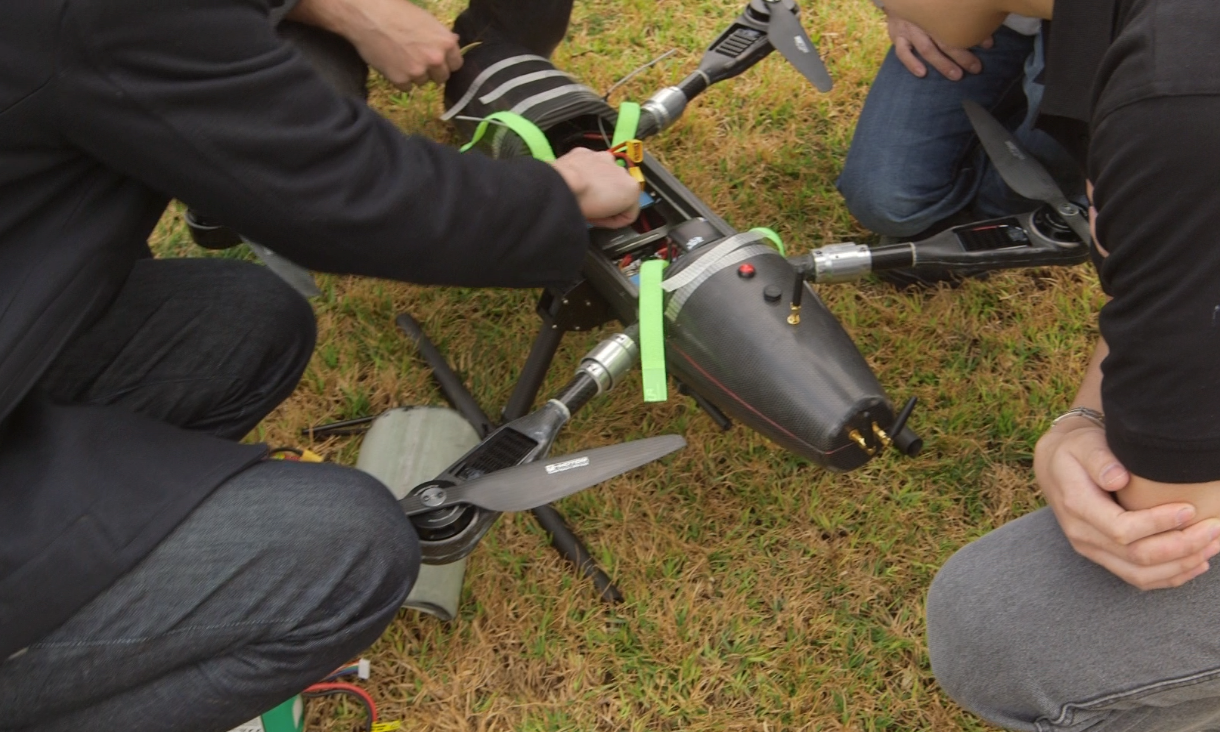Lecturer and industry fellow for broadcast journalism Phil Kafcaloudes, who has 26 years’ experience as a working journalist, leads the project.
Kafcaloudes said the process was complicated because it required a broad range of skills.
“This project encompasses everything: it’s performance, news, writing, editing, and being able to work the studio really well with someone else. But in the end, it’s worth it. It’s a minute of TV time that might get played four or five times,” he said.
Third-year students Brin Duggan and Freia Lily participated in this year’s program, producing the first of the daily bulletins.
Lily, who acted as producer on Monday, said it was important to have newsroom skills as a journalist.
“If you can be thrown into any part of journalism and be able to know what you’re doing then that’s vital,” she said.
After acting as news reader for the first bulletin, Duggan said that being on camera was also an important skill, noting that the studio allowed them to practice in a low-pressure environment.
Both students have also secured a work attachment with the ABC later this year.
RMIT has been a strong supporter of community TV, and has a longstanding history of collaboration with Channel 31, through both the School of Media and Communication and RMITV, a not-for-profit film and television group located at the RMIT City campus.
Kafcaloudes said they were lucky to have Channel 31 in Melbourne.
“It’s great to have a free-to-air broadcaster that we can support and that wants to air our stuff. It’s invaluable for our students,” he said.
Bachelor of Communication (Journalism) graduates continue to achieve across the industry, with four out of the eight 2018 ABC News Cadetships filled by RMIT graduates.
Alumni include acclaimed journalists Nick McKenzie, an investigative reporter for The Age who has won seven Walkley awards, and Rachael Brown, ABC journalist and host and creator of the crime podcast Trace.
“It shows we are teaching our students what the industry wants, and part of it is getting them to do things like ‘News in Sixty Seconds’ so they are able to demonstrate that they have experience across all aspects of the industry,” Kafcaloudes said.
The bulletins are filmed in brand-new studios in RMIT’s Media Portal, which was completed as part of the New Academic Street redevelopment in 2017.
Story: Jasmijn van Houten








